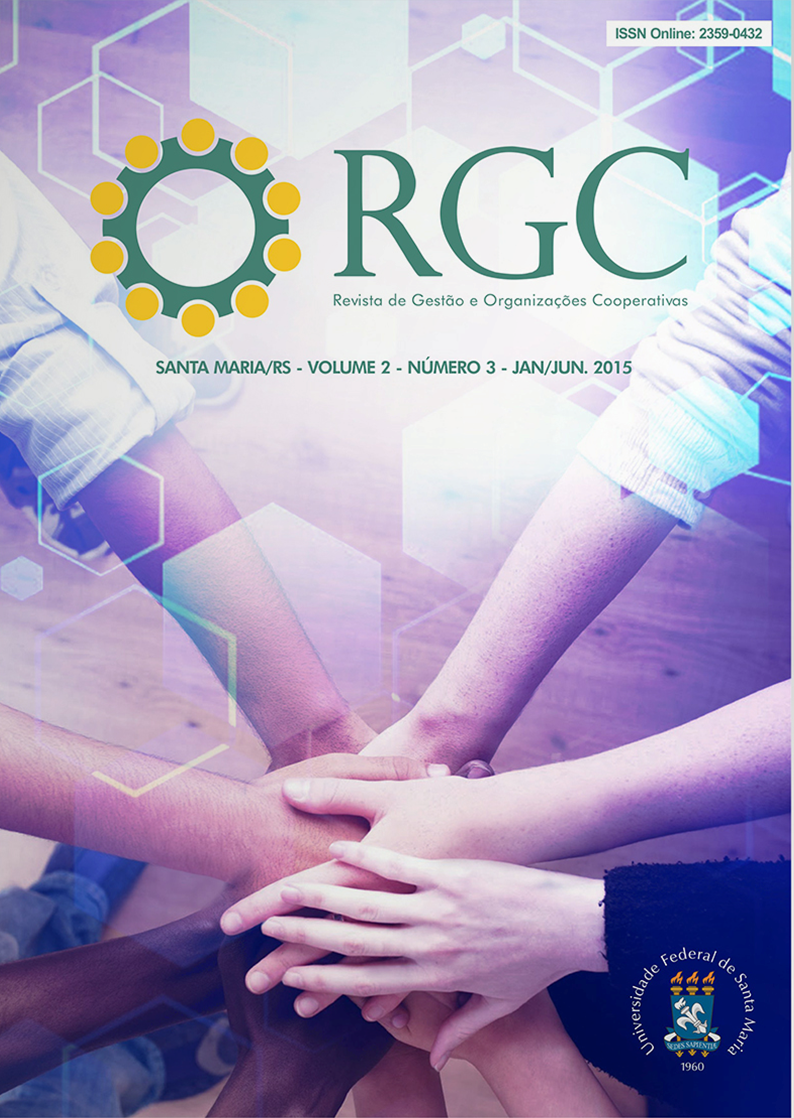Relative to the historical process of Cooperatives Electrification study: the case of Brazil and the United States
DOI:
https://doi.org/10.5902/2359043217059Keywords:
Rural electrification cooperatives, Brazil, United StatesAbstract
This study aimed to describe the main aspects of the historical process of electrification cooperatives (ECs) Brazilian in relation to American ECs. It is a qualitative research, exploratory, held in the form of literature, with data obtained through material published in books, magazines, theses and dissertations and the World Wide Web. The results show that the long-term electrification policies of absence to focus on CEs did not provide the growth of the sector in Brazil. Thus, the model of rural electrification through the ECs, developed in a biased manner with public utilities. The blurring of responsibilities, the legal uncertainty regarding the rules of the industry, competition for energy service areas with large dealerships, before public and now privatized, treatment equally to large utilities, are some of the points that still linger to this day. On the other hand, the growth of the American rural sector was given priority by the electrical power input in the 1930s the government incentive program, allocated to investment in electrification was the engine that accelerated the expansion and consolidation of rural electrification states Americans.that accelerated the expansion and consolidation of rural electrification states Americans.Downloads
References
ANEEL - Agência Nacional de Energia Elétrica. Disponível no Saite da ANEEL: http://www.aneel.gov.br/.
ANEEL - Agência Nacional de Energia Elétrica.. Ministério de Minas e Energia (MME). Prestação de contas ordinária anual. Relatório de Gestão do Exercício de 2010. Brasília. Março/2011. Disponível em:http://www.aneel.gov.br/arquivos/PDF/Relat%C3%B3rio_de_Gest%C3%A3o_2010_ANEEL_V1%20%282%29.pdf. Acesso em: 04/06/2012.
BRASIL, Lei nº 5764/71 de 16 de dezembro de 1971. Define a política nacional de cooperativismo, institui o regime jurídico das cooperativas, e dá outras providências. Disponível em: http://www.planalto.gov.br/ccivil_03/leis/L5764.htm Acesso em: 09/02/2012.
BRASIL, Decreto nº 6160 de 20 de julho de 2007. Regulamenta os §§ 1o e 2o do art. 23 da Lei no 9.074, de 7 de julho de 1995, com vistas à regularização das cooperativas de eletrificação rural como permissionárias de serviço público de distribuição de energia elétrica, e dá outras providências. Disponível em: http://www.planalto.gov.br/ccivil_03/_Ato2007 2010/2007/Decreto/D6160.htm. Acesso em: 05/05/2012.
BRASIL, Lei nº 9.074, de 7 de julho de 1995. Estabelece normas para outorga e prorrogações das concessões e permissões de serviços públicos e dá outras providências. Disponível em: http://www.planalto.gov.br/ccivil_03/leis/L9074cons.htm.Acesso em:10/06/2012
BRASIL, Decreto no. 41.019, de 26 de fevereiro de 1957. Regulamenta o Código de Águas. Brasília, DF, 1957.
BRASIL, Decreto no. 1.033, de 22 de maio de 1962. Brasília, DF, 1962.
COOPERS & LYBRAND. Projeto de Restruturação do Setor elétrico brasileiro: Etapa VI – Cooperativas de eletrificação rural (minuta).novembro de 1997.
Downloads
Published
How to Cite
Issue
Section
License
Authors who publish in this journal agree to the following terms:
- Authors retain copyright and grant the journal the right of first publication, with work simultaneously licensed under the Creative Commons Attribution License that allows the sharing of work with acknowledgment of authorship and initial publication in this journal.
- Authors are authorized to enter additional contracts separately for non-exclusive distribution of the version of the work published in this journal (eg, publishing in institutional repository or as a book chapter), with acknowledgment of authorship and initial publication in this journal.
- Authors are allowed and encouraged to post and distribute their work online (eg, in institutional repositories or on their personal page) at any point before or during the editorial process, as this can bring about productive change as well as increase impact and impact. citation of published work (See The Effect of Free Access).







